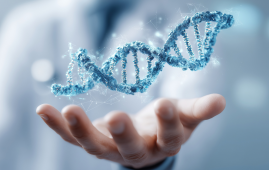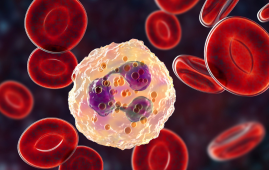

According to a recent study, domestic violence during pregnancy may significantly affect how the baby’s brain develops. Brain scans of 143 South African newborns whose mothers had experienced intimate partner violence (IPV) during pregnancy were examined by researchers from the University of Bath and the University of Cape Town. Abuse or attack on an emotional, physical, or sexual nature constitutes intimate partner violence. Infants had their average 3-week-old brain MRI scans, thus any alterations that were found most likely developed while the infant was still in the womb.
The study team reports that maternal exposure to IPV during pregnancy is linked to changes in brain structure in young newborns that are noticed soon after birth in the journal Developmental Cognitive Neuroscience. Even after the researchers took into consideration pregnancy problems, maternal smoking, and alcohol usage during pregnancy, this was still clear. It’s important to note that depending on the baby’s sex, the effects of IPV exposure can vary. The amygdala, a region of the brain involved in emotional and social development, was shown to be smaller in girls whose mothers had been exposed to IPV during pregnancy. Instead, IPV exposure was linked to a larger caudate nucleus in boys, a part of the brain that is involved in a variety of processes like movement execution, learning, memory, reward, and motivation.
Children whose mothers encounter high amounts of stress during pregnancy are more likely to have psychological problems in childhood or later in life, which may be explained by early alterations to brain architecture. Girls and boys frequently have various mental health issues, which may be related to gender differences in brain development. The study did not examine children’s emotional and cognitive development, the researchers said.
Lead researcher, Dr. Lucy Hiscox from the Department of Psychology at Bath, explained, “Our findings are a call to action on the three Rs of domestic violence awareness: recognize, respond, and refer. Preventing or quickly acting to help women escape domestic violence may be an effective way of supporting healthy brain development in children.”
This is the first study to analyze domestic violence, whereas earlier ones focused on the effects of maternal stress during pregnancy and how it affects children’s brain development. Follow-up studies are being conducted on the 8–9-year-old participants in this study to determine whether the variations in brain structure that were evident at 3 weeks of age remain the same or change with age.
Data from the Drakenstein Child Health Study (DCHS), a significant South African cohort study directed by South African pediatrician Professor Heather Zar, were analyzed for this study by a team from Bath working with researchers at the University of Cape Town (UCT). Since their birth, the DCHS has kept track of 1,143 kids, and data gathering is still ongoing.
Co-author, Professor Kirsty Donald, a pediatric neurologist and Head of the Division of Developmental Paediatrics at UCT added, “Strategies that help identify and support pregnant mums for multiple potential risks to their unborn babies will require an integrated health system approach and should be considered a public health priority.”
more recommended stories
 Microglia Neuroinflammation in Binge Drinking
Microglia Neuroinflammation in Binge DrinkingKey Takeaways (Quick Summary for HCPs).
 Durvalumab in Small Cell Lung Cancer: Survival vs Cost
Durvalumab in Small Cell Lung Cancer: Survival vs CostKey Points at a Glance Durvalumab.
 Rising Chagas Parasite Detected in Borderland Kissing Bugs
Rising Chagas Parasite Detected in Borderland Kissing BugsKey Takeaways (At a Glance) Infection.
 Can Ketogenic Diets Help PCOS? Meta-Analysis Insights
Can Ketogenic Diets Help PCOS? Meta-Analysis InsightsKey Takeaways (Quick Summary) A Clinical.
 Ancient HHV-6 Genomes Confirm Iron Age Viral Integration
Ancient HHV-6 Genomes Confirm Iron Age Viral IntegrationKey Takeaways for HCPs Scientists reconstructed.
 Fat-Regulating Enzyme Offers New Target for Obesity
Fat-Regulating Enzyme Offers New Target for ObesityKey Highlights (Quick Summary) Researchers identified.
 Gestational Diabetes Risk Identified by Blood Metabolites
Gestational Diabetes Risk Identified by Blood MetabolitesKey Takeaways (Quick Summary for Clinicians).
 Pelvic Floor Disorders: Treatable Yet Often Ignored
Pelvic Floor Disorders: Treatable Yet Often IgnoredKey Takeaways (Quick Summary) Pelvic floor.
 Circadian Control of Neutrophils in Myocardial Infarction
Circadian Control of Neutrophils in Myocardial InfarctionKey Takeaways for HCPs Neutrophil activity.
 E-Cigarette Use and Heart Attack Risk in Former Smokers
E-Cigarette Use and Heart Attack Risk in Former SmokersKey Takeaways for Clinicians and Nurses.

Leave a Comment